Canon for Christmas
The Greenbriar One Hundred Begins Here
So I am told that canons are gone and discredited and good riddance to bad rubbish. That means we each may pick minus constraint or expectation that worthy by consensus titles be included, fine because I intended so in any event. Art like life has too many should-likes to suit me. This canon shall be personal then, no more influential than preference for plain or peanut M&M’s. I’ve massaged a list over ten years never meant to designate “essentials,” for that relies on what others call essential, which would make mine someone else’s pick. Nor will I appoint “guilty pleasures,” for why bear guilt for what gives pleasure? One hundred will be stopping point … it could as easily be a thousand but addressing so many would take more lifetime than I’ve got. Let pretension dub result the Greenbriar Canon, that term to align my venture with church authorities electing what would first qualify back in the Middle Ages. Being canonic began with books of the Bible, so it presumes much to award any movie such pride of place, which is why lists, like for school curriculum, tend toward safe or easily defensible. I enjoyed a book Andrew Sarris wrote decades back where he made room among notables for one that meant much to him in theatre-going youth, My Foolish Heart (1949), directed by Mark Robson, with Dana Andrews and Susan Hayward. Of hundreds Sarris discussed in You Ain’t Heard Nothin’ Yet (published in 2000), the one I recall clearest is My Foolish Heart for being not just unexpected but nicely reflective of one critic’s taste. Why not be foolish enough of heart to pick for sentiment’s sake and let emotion be our guide rather than accepted wisdom that would choose for us?
Maybe there is such thing as aesthetic distance from art, but movies permit no such remove. What one loves is loved fervently. Movies come closest to music as transport to heaven. I haven’t spent enough time in museums to observe whether lookers weep before a painting or sculpture, but have seen many dissolve at predictable moments in film. Something precious seen during childhood will remain so for life. Choice need not be intelligent or even rational. One can enter a theatre with little hope and emerge renewed. Whatever was seen upon that day of rescue will remain cherished. We maintain fences around film beloved from early on. Whatever mattered then is treasured hence, like with Sarris and My Foolish Heart. I’m told lists are mentally made, if not taken down, by age twenty. Something may impress after but is less likely to enter what for most is a closed book. I would ask what all-time favorites became so in adulthood. Has anyone past thirty … forty … discovered a Best Picture They Ever Saw? Suppose I announced my Number One of a lifetime as no longer Meet Me in St. Louis, but Top Gun: Maverick. An intervention may be called for. At the least it would challenge who I’ve been till now (not to knock TG: M, very enjoyable by all accounts). Gilbert Seldes wrote that magic of movies wears off with maturity, most folks quitting theatres once grown, or attending much less. Canons for these don’t exist outside of stored memory. How many conceive of a “Best” list as anything other than a “Most Popular” list? Latter thrives as assist to marketing, that alone to make sense of further polls, us a mere focus group to determine which of old films merit continued play.
I am of remote sliver category defined 8-15-22 by a prof who was right for saying film is no wise what it seemed fifty-sixty years ago when there were so fewer titles to cope with. But then look at canons derived off literature, fewer classical books on reading lists, more culled as concept of canons is increasingly questioned. Think of fun to teach literature and add Lorna Doone and East Side, West Side to your semester syllabus, then await punishment from school administrators. You Tube seems to me a best place to observe how cultural winds blow. These are readers, watchers, fans and experts, instructors, a widest range, thinking and choosing for themselves, free range eggheads to some extent, but sincere in their purpose with many knowing too how to engage and entertain. I graze there daily to keep current on attitude toward books and film. Things in print anymore tend to date before ink is dry. I keep hoping YT analysts will more explore my sliver, but it seems majority, as in vast, figures The Godfather (or later) was where worthwhile movies began, little of merit or interest before. If there is to be You Tube appreciation for Cain and Mabel, I will have to generate it myself. Those who would load canon cannons with R.S., as in remote sliver, are elderly or hopeless-out-of-touch. Still, I make my testament and propose to stand by it. What alternative is there? Who’d believe Meet Me in St. Louis suddenly took back seat to Top Gun: Maverick? I predictably elect Citizen Kane lead for my list, not by preference or even of Top Ten, but for being the dinosaur likely to take longest becoming extinct.
CITIZEN KANE (1941) --- Why does young Charlie take such immediate dislike to Mr. Thatcher? Had he been taught we must all hate “rich bankers”? Thatcher overbears, but tries in his awkward way to be affable, and observe how fine a steward he will be of Charlie’s inheritance. Would there be sixty million dollars for C.F. Kane to fritter away on a newspaper had not Thatcher invested his assets so wisely? I dislike Charlie’s cruel answer when his guardian in old age asks the perfectly legitimate question of what he would like to have been if not for all the money. “Everything you hate,” replies the ingrate. Apart from his uncalled-for rudeness, I like Charlie and would argue he gets unfair shake from Jed Leland, who to me seems “judgy” for lack of a less hackneyed than such currently trendy word, as if Jed were there to seal the deal for Mr. Kane as empty and self-absorbed. Never did I observe Charlie being anything other than cheerful and good palsy with Jed, who it is clear was supported from college by his chum till their unfortunate break, which I regard as Jed’s fault for drunkenly telling Charlie off for myriad of faults not readily observed from behavior of steadfast mate latter appears to be. Were characters serving script agenda rather than what we actually see and hear of them? And where does Jed come off being so critical of Charlie after the poor, alone, and disdained tycoon is dead and past? Were I interviewer Alland and had a cigar at the retirement home, I’m not sure Jed would have merited a share.
And what of Susan Alexander? Charlie honestly thought she wanted to become a singer. He took up for her against anyone who was critical. Was this mere self-aggrandizing? Perhaps Charlie being obtuse in the extreme, but when did he claim to understand subtleties in human interaction? To others more sinned against than sinning, I vote yes to Boss Gettys and do blame Charlie for stirring that hornet’s nest. Did he not imagine his victim would fight back? --- yet observe picture-of-polite Gettys interaction with wronged Emily. I envision these two remaining friendly acquaintances after divorce dust settles. Mr. Bernstein is likeable because he understands Kane flaws but remains loyal to him. Bernstein is my favorite character. I could wish his vision of so long ago had stepped off that ferry and waited for him to catch up and introduce himself, though I’ll admit the union would not have worked because how could any relationship survive demands of an employer like Mr. Kane? Easy to imagine differing fates for Kane characters, viewers making their own creative contribution as with any complex art. Does Citizen Kane entertain those seeing it a first time? It did me in 1975. Kane off-puts some for its reputation as a “challenging” film, this more an issue in 1941 when ahead-of-time technique confused many, especially ones who entered theatres part way into the feature or even during a second half, habit of casual attendance in those days. I expect audiences were readier to embrace the 1956 reissue, successful and a crowd-pleaser in spots, this following imitators absorbed over fifteen years since 1941 release.
Citizen Kane gets now-and-then poke from quarrel over who really wrote it. Many who'd like Welles knocked off his perch say Mankiewicz. I'd propose watching Herman’s other credited films, then judge for yourself if he could manage a Citizen Kane without plentiful help. Citizen Kane tells rise-fall of a not appealing lead played by a not-so appealing lead man. Also an unknown lead man in 1941, at least on film. What had a public seen of Welles apart from newsreels where he apologized for the Martian raid? What if Joseph Cotten played Kane and let Orson be Jed? All this in the face of my still-affection for C.F. Kane as misunderstood if not set upon, but Welles did come across high-handed in his early-on glory, and there is evidence he was resented for it both in and out of the picture community. Citizen Kane still is a wonderfully enjoyable show, never a bore, smart writing, magic overall that could be achieved only at RKO, staff and sensibility just waiting for someone like Welles to come in and fire them up. I never felt Kane to be a duty sit, and regret some others have. Has ground for fun been ground-under by academics? Maybe 1956 reissue and then early syndication was last occasion for Citizen Kane to be enjoyed on its own terms and not as something to be studied and thus dreaded. Were I told to teach it, then how about this to introduce: “Here’s a pretty good one about days when newspapers mattered like horse and carriages or passenger trains,” then wait for the end when someone (or more) says “Hey Professor Greenbriar, this was lots better than you made it out to be.” Citizen Kane is lately out on 4K, looking good as anything could with the negative no longer around.
Citizen Kane photo restorations by, and courtesy of, Mark Vieira of Starlight Studio.
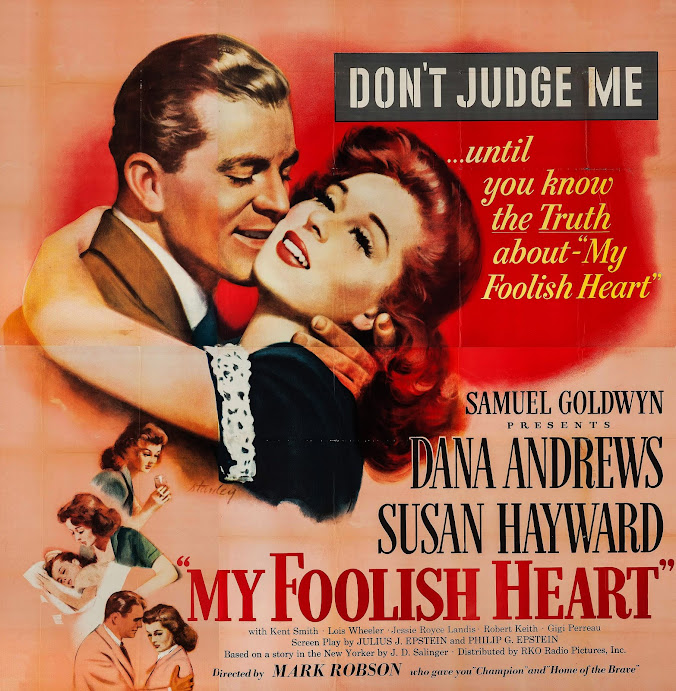
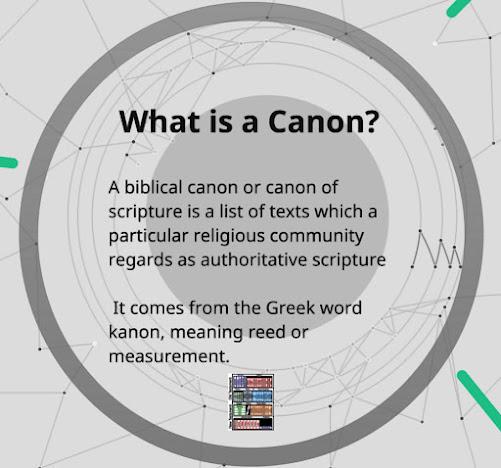




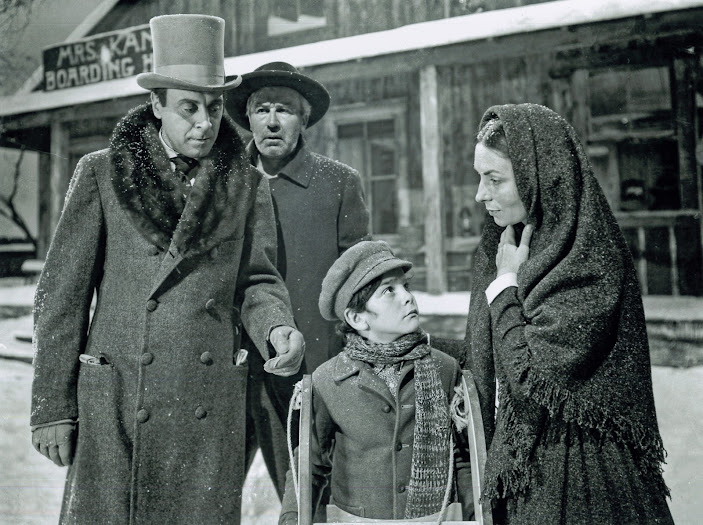

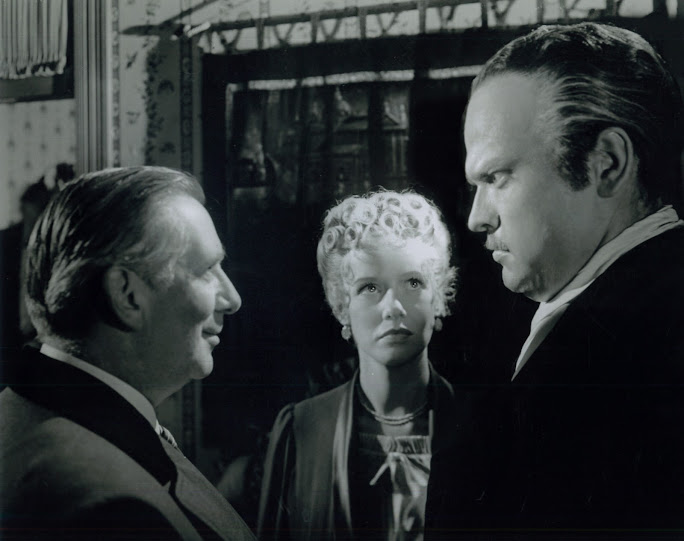

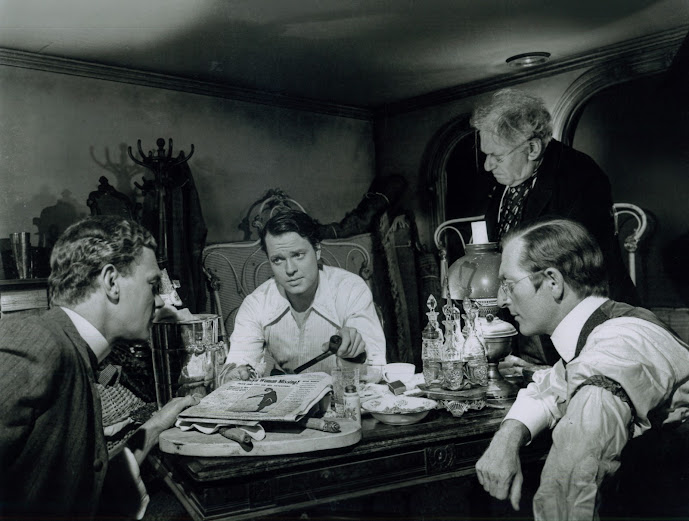

21 Comments:
When I am asked by others what books they should read or movies they should watch I say, "Find your own." Why? Because we do not read recommended books or watch recommended movies the same way we read books and watch movies we discover on our own.
Basically read everything you can. Watch everything you can. But do it for its own sake.
A pivotal moment for me was watching my 8mm Griggs prints of METROPOLIS and THE PHANTOM OF THE OPERA silent on my bedroom wall.
More than anything I had seen before those two pictures woke me up to the potential of the movies. Neat post. Thank you. Merry Christmas.--Reg Hartt
I had neither seen nor heard of Citizen Kane until I first saw it as part of a film class I took in college as a spare back in the 1980s - I thought it was great, a beautiful looking film with the visuals in full service of the drama.
Some classics endure because we want to see the roots of something. Today we might smirk at Griffith's sentimental one-reelers, but at the same time we're trying to sense when this was something new in the world, unspoiled by repetition. Others last because they still engage. "Citizen Kane" would only interest film students if Kane were a conventional hero or villain. The genius was presenting this difficult character as a mystery to be solved. In the end the movie answers only the very opening question (for us, and not the characters). But what about everything else? Can we trust the various witnesses? Did they -- or we -- overlook something else? Was Kane just the sum of what people thought he was? Did we just watch the life of an SOB or an American tragedy? That's what endures, not ceilings on sets or now-standard editing. The end is not so much a question mark as a challenge to process what we know about Kane.
A note on the word "canon": When Sir Arthur Conan Doyle cranked out Sherlock Holmes between what he regarded as his real works, he didn't really worry about the stories fitting together. Later, Sherlockians made a vast game of aligning Doyle's stories with each other and with real events. The "canon" was defined as the 56 short stories and four novels written by Doyle. "Canonical" was used to identify something that was explicitly stated by Dr. Watson in one of those stories.
Now we have franchises, "universes" encompassing multiple properties such as the Marvel superheroes or the many incarnations of Star Trek. Each franchise has multiple movie and television projects, or series of books, or comics, etc. In recent years it's a corporate priority to keep a franchise's various tentacles in sync: A character clearly killed off here can't casually pop up there without a lot of explaining. If this supervillain steals the Statue of Liberty, these other NY-based guys have to notice it. This complicated status quo is call "canon", and you'll find serious online discussions about whether a throwaway gag in a movie or something in a theme park ride is "canonical" -- that is, officially the rule in all the related movies and shows. It's the Sherlockian game, but played on the Internet with a lot of digital shouting.
Back to cookies.
""Citizen Kane" would only interest film students if Kane were a conventional hero or villain" - I disagree.
Besides being overly dismissive of the critical abilities of the mass of film students when it comes to theatrics, that point of view neglects that film students can learn much about the craft of film-making from the technical presentation of the drama ( shot composition, lighting, set design, editing) - regardless of the quality or even nature of the drama itself.
One doesn't need to be interested in a story in order to be interested in the way the story is being told.
Griff considers Kane and Christmas:
Dear John:
This is an old adage, but I believe it still holds true: CITIZEN KANE is simply more fun than any other film routinely considered A Great Movie.
[Yes, I too "think it would be fun to run a newspaper."]
As for Mr. Thatcher, I think the young C.F. Kane should have hit him much harder with his sled.
Happy holidays and best wishes for the new year for all, particularly for the proprietor of Greenbriar Picture Shows.
Regards,
Griff
Your analysis of Kane reminds me of my opinion of the character as I rewatched CK over the years. When I first saw CK as a boy, I felt bad for Kane. As a rebellious teenager, I hated him. As an adult, I felt pity. Perhaps it's Kane's complexity, rather than a straightforward good guy-turned-bad or forever bad gu, that confused audiences upon its original release. Were they supposed to cheer or boo or cry at the end?
Maybe that complexity, too, explains Kane's dislike for Thatcher. Taken from his parents as a boy, Kane likely held a grudge against him no matter how rich he got. Stuff from your childhood can last a lifetime. Rosebud and all that.
Slightly off-topic -- recently a judge ruled that moviegoers can sue over a "misleading" trailer. Imagine if he had been around when CK's original trailer had been released! Almost makes it look like a musical comedy.
I am in agreement with Filmfanman -- I simply expressed myself badly. My intended statement was that with a stock hero or villain "Citizen Kane's" following would now be limited to ("only") film students studying it for the craft and artistry. Instead, generations of non-academic viewers grappled with Kane and, as Kevin K. points out, whether to cheer or boo or cry for the character. He demands a reaction, but in a very unHollywood way refuses to dictate one.
I first saw KANE back when NBC had late programming but everyone else had "old" movies.
I would watch CK until I tired of not "getting it." I knew I was growing up when I was finally able to sit through the whole film and enjoy it for the great fun it is.
It is posts like this that have kept me coming back to GPS for more than a decade....
Thanks so much for what you said, James. It means a lot.
I can see the "commercial logic" of Welles trying to leave Mankiewicz out of the credits, kind of, as putting Mankiewicz's name up there on the screen for all to see must have been like a "red flag" to the bull that was William Randolph Hearst; not that its lack would have of a certainty made any difference to Hearst's reaction to the film - but it might have done.
Mankiewicz's screen credit must have served to remove all doubt from Hearst's mind as to who had been spilling his beans, so to speak, while at the same time rendering any claim by Welles that the film was not based on Hearst's life laughable for either its apparent cluelessness or its dishonesty.
How Hearst used his power to try to crush this film is well known; perhaps Welles wanted Mankiewicz's name left out of the picture to try to avoid that all-too-predictable response.
Inspired by this discussion, I dug Citizen Kane out of the bin and re-watched it.
The political drama - or should I say the romantic drama? - holds up beautifully and well, and I think the film hasn't dated at all insofar as the film deals with human motivations and interaction; this, although every last prop and piece of bric-a-brac you see on the screen looks more antique than ever. It's a great film.
The short sequence of Bernstein telling the boys in the press room which already-typeset headline to run after Kane's loss - "Fraud at Polls!" says the one chosen, even though in the very same breath Bernstein has already admitted that Kane was trailing by over a million votes - could have been written this very year.
I also note that Susan Alexander Kane is first presented to us as a professional nightclub singer, her name literally up in lights - which means that Kane had actually succeeded in doing what Leland later claims Kane was trying to do; that is, to remove the quotes from the word 'singer' as it had appeared in the headline which ended Kane's political career. She had become a professional singer.
But I note it ironically took Susan actually leaving Charles for that to come about, because Kane had subverted her true talent by trying to remake her as a singer of opera; and, after that failure, as his wife she was could serve only as a hostess for his parties - his parties, not hers, because he was the one paying for them.
It would have been better for all of them had Susan been the one singing with the jazz band at Kane's jungle picnics - but as Kane's "hostess" she just couldn't do that. Kane wouldn't have "had it". Susan even complains about her role as his 'hostess' explicitly.
Was Welles trying to say something about the unhappiness all around that can result when others try to insensitively dictate to artists precisely how to use their talents? That was a common occurrence in the movie business of the 1930s and 1940s - or so some would say.
Let's face it, Jed Leland is a bit of a dick.
The quotes around the word "Singer" were meant to imply that she was a, to put it bluntly, whore.
The mass media has their way of stating things so that they cannot be prosecuted for libel. The word "Eccentric" meant "homosexual."
Most of us on this site know (or should know) Susan Alexander was based on Marion Davies just as Kane was based on Hearst and that the real meaning of "Rosebud" was/is not a sled.
The film is a brilliantly crafted private joke at the expense of Hearst who must have wondered furiously how the Hell that secret got out.
It got out from the only person who knew it which was Marion Davies.
Jazz, you should remember, in the period the film is set was viewed as whorehouse music. There was no way Kane could build a career for her with that.--Reg Hartt
Kevin K. makes a welcome visit:
Hey John,
My new year's resolution is to avoid reading comments on all sites except yours. It must be the only one where readers are civil, and disagreements aren't cause to hurl insults. Your readers' comments make me feel I'm with a group of likeminded people in smoking jackets while sipping fine brandy and smoking good cigars.
Have a great 2023! And if you have any suggestions for cool conventions focusing on old movies, let me know, particularly if you're going to be there hawking your book.
Kevin Kusinitz
NYC
Kevin K, check out the Lone Pine Film Festival in October; old movies and the original filming locations.
John, thanks for the Christmas present! Looking forward to the rest of the canon.
Happy and Healthy New Year! Mike D
Now I'm wondering what Marion Davies thought about this movie.
Did she ever go on record with an opinion about it?
MARION DAVIES on ORSON WELLES
I never saw the picture Citizen Kane but my sister Rose did, and she said, “I’ll kill him. It’s terrible. You can’t even see the picture, because it’s all dark.” I said, “Why are you saying it’s terrible? “It’s against you. They have you playing and hiding behind curtains.”
I said to her, “Rose, there’s one tradition that I have that was taught to me by W.R. Never read criticism about yourself.” Once I made a mistake and read some criticism of myself, and it did get me riled up. After that I didn’t read any critics and I paid no attention.
A man working on the Telegram in New York wrote a scathing article about the picture Cain and Mabel; he said I should be washing dishes. Little did he know that I loved to wash dishes, and I liked to dry them, too, But he went on and on and on. I sent him a telegram saying, “I’m mad at you.” That was all I said, and I never got an answer. It was silly of me, and stupid, and he was probably right.
W.R. never went to see Citizen Kane either. The Hearst newspapers put a ban on it, as far as publicity went, but W.R. wasn’t little that way. His theory was that no matter what anybody said, no matter what they wrote, you didn’t read it and you didn’t listen.
W.R. said, “Yesterday’s newspaper is old news.” But plenty of people talked about Citizen Kane. They would say that it was terrible and I had to go see it. But we never did.
I had no anger toward Orson Welles. After all, everybody is created to do their very best, and he probably thought that was his way to make money. Who was I to say I didn’t like the way he did his picture? I was not built that way. I liked to keep the waters calm.
And I heard about Aldous Huxley. I don’t think I ever met him, nor did I read his book, but I wanted to. (Huxley’s After Many a Summer Dies The Swan was considered a parody on life at San Simeon).
When W.R. was really interested in something, he would go in heart and soul. Not just a little bit, but all. He did the same with my pictures as he did with his newspapers. He never made the remark, “I feel the pulse of the public.” He seemed to know what the public would like, and he opposed anything that mothers wouldn’t bring their children to see. He wanted nice, clean, honest pictures.
He wanted me to keep my career. He had signs all over New York City and pictures in the papers, and I was always meeting people. I thought it got to be a little bit too much, but W.R. didn’t.
I said, “Maybe somebody else could do it, somebody who has talent.” But the way he advertised me, I don’t think anybody could. I said, “This is irritating to the general public. They read it, and then they go see the picture, and they think it isn’t what they thought they were going to see.” But I couldn’t stop him.
In New York City there were big signs, blocks and blocks of signs, and people got so tired of the name Marion Davies that they would actually insult me. W.R. thought he was building up a star. He saw me, in all his good faith, as an actress, or that I had the ability to be one.
I hope, before he died, he found out I wasn’t. Still, I think he thought I was.
Marion Davies
Beverly Hills, California, 1951.
https://www.wellesnet.com/orson-welles-on-marion-davies/
--Reg Hartt
So Marion Davies wasn't qualified to give an opinion on 'Citizen Kane', as she had never seen the film, and had avoided seeing it. She still makes an interesting comment.
"Ignore it and it goes away" - that's the way it used to be with all media before the internet. Especially if the copyright holders would have it so!
Now media products like movies and music and news articles never "go away", they only become "tough to find online".
"Ignore it and it becomes tough to find online" - sadly that just doesn't have the same ring to it.
By the way - happy new year to all reading this!
Davies's reputation has been upgraded in recent years, thanks to increased exposure of her comedy work. She was out of the game by the time of "Citizen Kane", but away from Hearst's overblown dramas she was successful.
On an impulse, revisited "The Golden Age of Comedy" yesterday. Will probably be digging into your archived posts about Youngson's work later. And a timely reminder to everybody here to take a look at all the good stuff posted at Greenbriar before they discovered it.
Thanks very much for making that suggestion, Donald. The Archive and search options are wide open 24/7, covering 2,378 columns published since 12/29/2005.
Happy New Year to you and all readers of Greenbriar, and especially those who have been so generous as to leave comments over these past seventeen years.
Post a Comment
<< Home